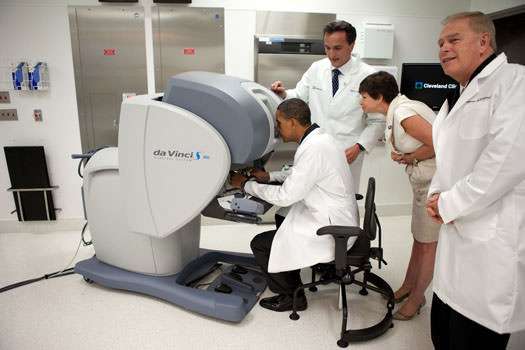Obamacare Savings Program Shows Partial Success—But Will It Last?

One of the biggest questions about Obamacare has always been whether its much-hyped medium- and long-term cost savings are actually achievable. Earlier this week, we got a couple pieces of information suggesting that there's still some reason to be skeptical.
Accountable Care Organizations (ACOs) are the most prominent of the law's delivery system reforms, and the one that its supporters are most likely to point to when talking the law's transformative impact. The basic idea behind Obamacare's ACO program, as outlined by former Medicare chief Donald Berwick, is that hospital systems or other networks of providers take responsibility for coordinating patient care. If those systems beat certain savings targets, while also hitting quality measures, they get to share some of the savings with Medicare. In theory, thanks to those incentives, you get care that is more organized, more effective, and less expensive.
Since the end of 2011, Medicare has been running an ACO pilot program with a select group of ACO pioneers—32 hospital system intended to serve as both models an test beds for the ACO project. On Tuesday, The Wall Street Journal wrote up the results of the pioneer program, which the headline describes as "mixed." Every one of the 32 participants showed improvement on the program's health care quality. Only half, however, managed to save money.
Despite the quality improvements, it doesn't seem to have been a stellar experience for all of the players. Two of the systems lost money in the program. And others say they won't stick with it—seven say they're switching to different programs, and two others say they're leaving the ACO pilot entirely.
As the Journal says, these are mixed results. But all in all, they are not so bad. Indeed, judged by the standards of lots of high-hope, low-return health care pilot programs, they are actually pretty good. Every single participant improved on the program's quality measures. And a little more than half saved money. Overall, the program participants reduced per-beneficiary cost growth; it grew by about 0.3 percent in the Pioneer program, and about 0.8 percent for an equivalent population outside of it.
Saving money on Medicare while delivering better quality to patients is objectively good news. And in a world where health care pilot programs frequently don't deliver much in the way of savings or health improvements at all, it's especially good. This is a program that should be continued, with an eye toward expansion. And I say this as someone who has been fairly critical of the health law's ACO program up until now.
And yet I remain skeptical about the longer-term prospects for savings. Why? Because it's not clear that these sorts of efficiency gains can be sustained.
The Wall Street Journal's report checked in with Atrius Health, one of the hospital systems that lost money. The reason they couldn't lower costs in the ACO pioneer program was because they had already done it, on their own, in the years prior. "We didn't have as much low-hanging fruit," Emily Brower, the executive director of Atrius Health's ACO, told the Journal.
Which suggests that after the initial, easy savings are realized—after the low-hanging fruit is picked in the hospital networks that haven't done it yet—it may be hard to keep saving money in the medium and long term.
There's another thing to remember too, which is that the Pioneer program was made up of a select group of providers—highly motivated and highly likely to have the resources to make the program work. It's a test that looks at candidates who are most likely to perform. And yet, even with this highly favorable sample, only half of this group was able to make the savings work.
In addition, if you look at hospital productivity trends, it suggests that health providers are going to have a hard time keeping up with the sort of savings that Obamacare's authors envisioned. Former Medicare actuary Richard Foster warned repeatedly hospitals aren't like to make dramatic improvements to their productivity levels over the medium term, and that Obamacare's authors were likely to be overambitious in their goals. Other research points to similar limits on productivity growth.
These results show some real promise. And they suggest that ACOs might help some of them do more, for a little while. But it's still far from clear they'll do enough to make the transformative difference for which many supporters seemed to have hoped.


Show Comments (5)